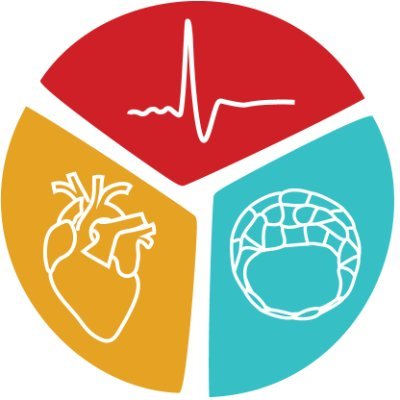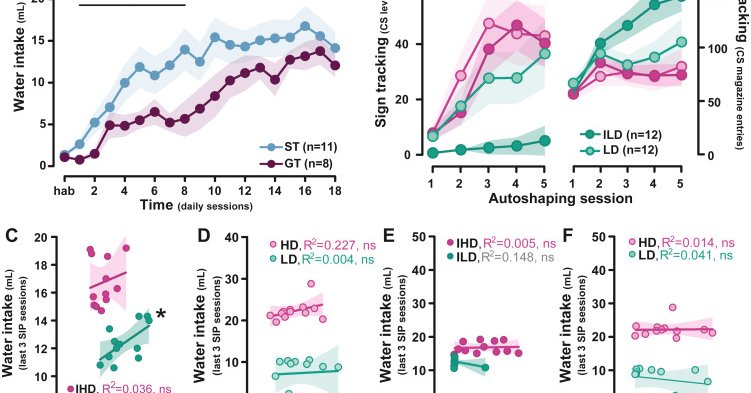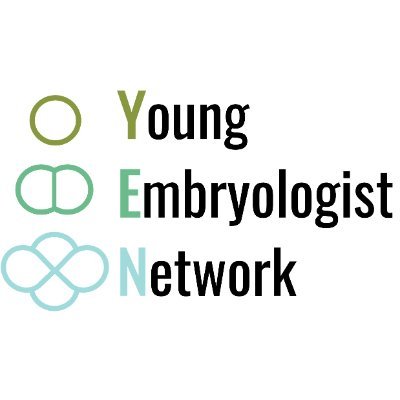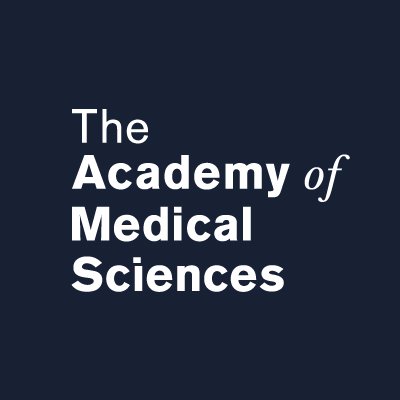
PDN Cambridge
@PDN_Cambridge
Followers
2K
Following
153
Media
295
Statuses
1K
Official profile of the Department of Physiology, Development and Neuroscience, University of Cambridge https://t.co/hLS7GY3As3
Downing Site, Cambridge
Joined September 2012
We are seeking a highly motivated and proactive Chief Research Laboratory Technician to support the @PerriLab. The lab investigates how genetic and environmental factors influence fetal development, pregnancy, and long-term health. More details at https://t.co/zAHLpfLICE
0
2
3
Congratulations to PDN scientists @EwaPaluch6 and Felipe Karam Teixeira, along with colleagues within the @Cambridge_SBS and other European Institutions, who have been awarded @ERC_Research Synergy Grants 🥳 Follow the link to learn about their projects
bio.cam.ac.uk
Four leading scientists in the School of Biological Sciences, University of Cambridge, working with colleagues in other European institutions, have been awarded Synergy Grants from the European
0
1
4
Work with us! 📢 The Health and Safety Coordinator plays a vital role in the departmental safety team, working to ensure that our extensive research, teaching, and other activities are conducted safely and effectively Apply at https://t.co/yuv8dOqa9b
0
1
0
We're looking for a Facilities & Operations Manager to join us! 📢 You'll have excellent problem solving skills, be collaborative and hands on, have a Building Management and/or Lab and Facilities background, and staff management experience. Find out more:
cam.ac.uk
This is an opportune time to join a large, welcoming and inclusive Department with an exceptional international record in teaching and research. The Facilities and Operations Manager will be part of
0
2
1
Latest paper from the CLIC lab at @PDN_Cambridge and Sue Jones, from the amazing Chloe Chernoff and Aude Belin-Rauscent, in collaboration with Dr Torrisi and Dr Higuera-Matas:
biologicalpsychiatryjournal.com
Loss of control over coping strategies can result in the development of impulsive/compulsive spectrum disorders (ICSDs) such as obsessive-compulsive disorder or trichotillomania. Rats, like humans,...
0
6
15
Congratulations to Zhongchao Wang from @PDN_Cambridge for winning the Early Investigator Prize 2024 in the #General physiology category! 🔎 🏆 📜 Read the winning paper here: https://t.co/Ln6J9aPdRJ 🔗 See the full list of winners: https://t.co/CBUOir294r
0
1
2
Congratulations @LabRawlins who've been awarded an @ERC_Research Advanced Grant, focused on developing knowledge for future human lung regeneration The work will understand, or decode, how human lungs control the number & type of cells they contain #ERCAd
https://t.co/irpdXqi6H1
6
3
32
#CABDseminars "Mechanisms and Mechanics of Morphogenesis: the role of supracellular coordination" by Katja Roeper @katjaroeper @PDN_Cambridge 🗓️June 6th ⏰ 12 pm 📍Rosalind Franklin auditorium at CABD Hosted by Acaimo González Reyes
0
1
4
@StJohnstonLab @GurdonInstitute @PLOSBiology I also caught up with Helena Crellin from @buckley_lab @PDN_Cambridge, who used a custom microscope with @CamMicroscopy to control actomyosin contractility in zebrafish and study how cellular forces can propagate along tissues. (3/3)
0
1
2
@CrickLab @GeneticsCam @Martanska from @PDN_Cambridge presenting her work with gastruloids on how mechanical properties of individual cells can affect tissue level properties and morphology
1
1
6
Congratulations to the @Gates_Cambridge Class of 2025, who have been awarded scholarships in Gates Cambridge 25th year. A very warm welcome also to Tess Stanley and Yimeng Wang, who will be joining the PDN community! We look forward to working with you https://t.co/PI9zVVHwDP
cam.ac.uk
95 future leaders have been selected as Gates Cambridge Scholars in the scholarship's 25th anniversary year.
0
2
5
We are delighted to welcome Dr Caren Norden to PDN as the new Charles Darwin Professor of Animal Embryology. This position plays a vital role in sustaining our thriving community of developmental and reproductive biologists. Read the story in full at https://t.co/4KJ57tNZix
1
2
7
The @PerriLab are looking for a researcher to join their collaborative team, investigating how placental development & function contribute to adverse pregnancy outcomes in cases affected by hypoxia or elevated heat exposure. For further details visit https://t.co/vBwd6blBfi
0
8
9
Not long now until #PDNSymposium25! Will you be visiting us on 24th and 25th April? Go to the PDN Symposium web pages to find out more and plan your day https://t.co/bJWSzn8hu6 🧪 Thanks to all our sponsors for their support 👏
0
2
1
Can dogs help tackle #obesity? 🐶 #Springboard25 awardee @EllieRaffan is comparing canine and human genetics to uncover new insights into weight and appetite. 👉 See how Springboard is backing such innovative research: https://t.co/lXsdmEH9CK
@SciTechgovuk
1
1
2
We are happy to confirm that we're participating in this year’s AIM:PhD programme 🔬 AIM:PhD is designed to support PhD applicants with their application for doctoral study at the @Cambridge_Uni For full details, visit the AIM: PhD Website https://t.co/dNE9sBuZVC
0
1
10
Scientists, co-led by Dr Keita Tamura, discovered previously unknown neural modules that control mouth movements. By studying how the modules interact, they hope to better understand the mechanisms of the brain through simpler interaction of the modules https://t.co/zG0MRNj7l8
actu.epfl.ch
Scientists have identified previously unknown neural modules in the brain that control movement and adapt during skill learning. Their findings challenge long-held ideas about how the brain organizes...
1
4
4
Ever wondered why some Labradors are always hungry? 🐶 @EllieRaffan and her team @PDN_Cambridge have found new ‘obesity genes’ in Labradors that makes carriers prone to overeating. It also turns out the same genes can influence obesity in humans too. Read more about this study
3
13
38
A study, published in @ScienceMagazine highlights the value of pet dogs as a model for understanding obesity in both humans and animals. The study, led by PDN Academic @EllieRaffan, illustrates how genetic obesity risk leads to weight gain. https://t.co/JP03rQDGxK
1
5
14











